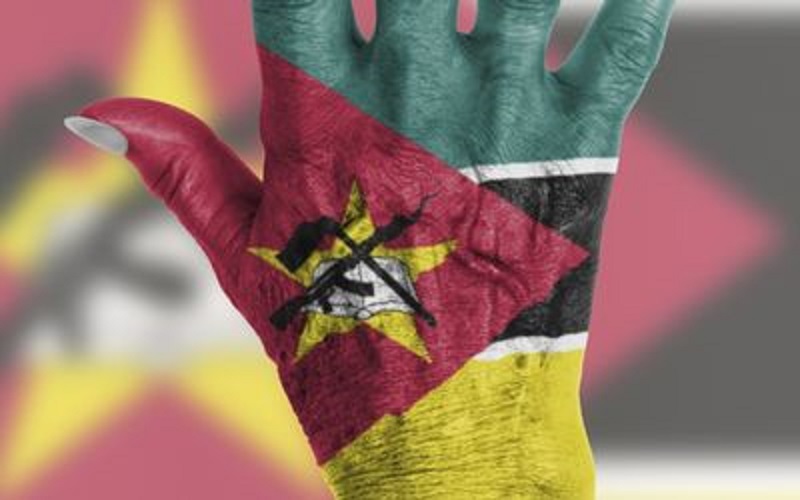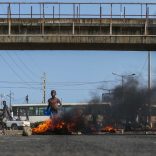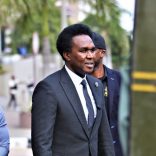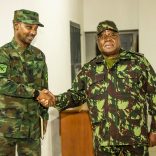Mozambique: Over 2,790 still detained one year after election protests - Plataforma Decide report
Mediators call time-out to impose order on the talks – Hanlon

After three days of talks between Renamo and the government, the two sides have thrown so many issues on the table and apparently taken such initial hard lines that the mediators have asked to suspend the talks. They want to draft a document with “suggestions and positions” to guide and “create more order in the discussion, taking into account that many things have been raised,” said Mario Raffaelli at the end of the third session Saturday. No date has been set for a resumption of talks. (AIM & STV 23 July) Mario Raffaelli, who headed the 1990-92 Rome peace talks, appears to be chair or at least spokesperson for the mediators.
Talks with mediators continued for three days. They opened Thursday (21 July) and the session’s spokesperson, Renamo’s Jose Manteigas, said “we began discussions about the governance by Renamo in the six provinces. Because this took some time we decided to carry on tomorrow [Friday] in the same place”. The Friday session was cut short with a request by Renamo and government negotiators to consult their leaders. Mario Raffaelli, de facto head of the mediators, explained, “as mediators, we raised proposals which the two delegations have to examine and discuss. The delegations have to consult their leaders”. (AIM, O Pais, Zitamar 20-21 July)
Speaking at the end of the session Saturday, Raffaelli said “today, the delegations presented their proposals. There was a discussion between the two. Now there is a request from our side to create more order in the discussion, taking into account that many things have been raised”, Raffaelli said.
As expected, both sides have set out their positions for the start of the negotiations. In a telephone interview 19 July with Savana (22 July) Renamo head Afonso Dhlakama stressed there can be no cease fire until “the problems that brought about the military conflict” have been resolved. “If we do not reach an accord with reconciliation, and we do not understand each other, then in a few months the conflict will start again. … So we are not interested in a cease fire before we solve the problems.” He also claimed that it was only military action which forced Frelimo to accept mediators, implying that continued military pressure is part of the negotiations. And he stressed one of the most important of those points is governing six provinces, and that the constitution must be changed. He also claimed his forces only attack civilian vehicles doing military work, such as civilian buses carrying soldiers.
On the other side, President Nyusi spoke in Luabo, Zambezia, on 22 July and said that “decentralisation is a gradual process that cannot” be speeded up or imposed by armed force. (AIM Pt 22 July) And he told the mediators that the constitution of Mozambique must be followed.
In press conferences Friday, Renamo spokesman Antonio Muchanga said government troops were continuing their artillery attacks on Alfonso Dhlakama’s base at Satunjira on the Gorongosa mountain, while Dhlakama told Savana that attacks “have been reduced in the past ten days”. Sofala governor Helena Taipo accused Renamo of killing a chief in Chibabava Thursday. (Lusa 22 July) In a visit to Mopeia on 21 July, President Nyusi confirmed that there were Renamo attacks, and said this was because the local people refused to denounce the Renamo guerrillas. (Diario da Zambezia, 22 July)
Comment 1
The power to appoint
Since the colonial era, the power to appoint and dismiss without justification – ministers, governors, administrators, and board and company officials – has been the symbol of power, but also has the practical importance of creating patronage and loyalty. In the centralised Mozambican system, the President has that power.
Dhlakama is demanding (and waging war to gain) the power to appoint governors in the provinces where he claims Renamo won elections. (Dhlakama only won more that half the votes in 2 provinces; 4 others were close and in 3 of those Renamo might argue it “won”. See table in the attached pdf of this newsletter.) The key point is that Dhlakama is not demanding elections for governor, but the right to appoint governors where he gained the most votes. Furthermore, he demands the right to govern based on the 2014 elections and not wait for 2019 because “it will give Frelimo another chance to prepare a coup to leave us with just 5 MPs and say Renamo is finished.”
Dhlakama told Savana that that constitution must be changed “to transfer power from Frelimo governors to governors named by Renamo – political and administrative power.”
Neither Renamo nor Frelimo trusts elected officials. Dhlakama remains insecure and will not allow anyone to gain enough power to challenge him; the rise of Daviz Simango as a popular and successful mayor of Beira who challenged Dhlakama has underlined his fear of people who are elected and gain an individual power base. Renamo did not stand in 2013 municipal elections. At Dhlakama’s insistence, elected provincial parliaments were created in 2006; they could have been an important basis for decentralisation and Renamo won majorities in 3 provincial parliaments in 2014, but Dhlakama has totally ignored them.
A problem for the international community and many Mozambicans is that when he has the opportunity to appoint, too often Dhlakama nominates weak but loyal people, who become ineffective in posts such as on the National Elections Commission. He also tries to keep very tight personal control, often using mobile phones to give instructions to people in meetings.
On the other side, Frelimo also distrusts elected officials. It created municipalities with elected mayors in 1998 and has doubled the number since then. But to keep elected mayors in check, it created a parallel structure, with a nominated governor for Maputo city and nominated district administrators for other municipalities, leading to confusion over powers.
As the governing party for more than 40 years, Frelimo has gained the capacity to appoint trained and competent people to administrative and senior posts, and has the ability to use its patronage powers to keep them loyal to the party. It has also learned how to decentralise power and give general instructions without trying to maintain detailed control. Having never had the power to appoint, Dhlakama does not have the skill and experience, nor the party structure, to ensure that appointments are both loyal and functional. So giving Dhlakama substantial power to appoint would ensure 5-10 years of weak management while Dhlakama and Renamo learned to manage an appointment-based patronage system.
By putting the demand to govern (and thus appoint) in six provinces as the top agenda item, Dhlakama has made clear the centrality of his demand to have power, and particularly the power to appoint. jh
Comment 2
Not on the agenda – yet
Two items are not on the agenda, but surely will be added eventually. One is money, and probably several hundred million dollars will be needed. From the Rome talks 25 years ago, the Renamo leadership has always wanted money and some level of luxury. The current crisis is triggered in part by Renamo (and many ordinary citizens) seeing an increasingly ostentatious life-style by an elite, and demanding a share.
But the Savana interview shows another issue, not yet fully formed, that Dhlakama wants something in the agreement to prevent him from being cheated by Frelimo. He seems convinced that without some undefined safeguards, Frelimo will always get around any agreement and marginalise him. He makes clear in the Savana interview that he is convinced that he won all five presidential elections and was defeated by fraud. “I met with [former president Joaquim] Chissano various time and I even through we were friends. But it was Chissano who stole the votes from me in 1994 and 99, even though he met with me.” The Constitutional Council, the army and the police all take orders from the Frelimo central committee and elections are stolen, Dhlakama said.
“Neither previous accord [in 1992 and 2014] was implemented,” he concluded. “We need to create an instrument that involves civil society to supervise the accord, which the Rome agreement lacked.” jh
Mediators list
A more complete list of mediators was published by AIM (En 22 July):
+ European Union: Mario Raffaelli and Angelo Romano (Santo Egidio).
+ South Africa: Mandisi Mpahlwa (High Commissioner in Mozambique; was Minister of Trade and Industry 2004-9) plus Thanduyise Chiliza, Mandlenkosi Memela, and George Johannes.
+ Vatican: Edgar Pena Parra (Apostolic Nuncio to Mozambique) and Joao Carlos Hatoa Nunes (secretary of the Mozambique Episcopal Conference)
+ Inter Mediate: Jonathan Powell.
+ Global Leadership Foundation: Ketumile Masire and Sir Robin Christopher.
+ Tanzania: Jakaya Kikwete and Ibrahim Msambaho.
Did Renamo win in 6 provinces?
Afonso Dhlakama received the most presidential votes in five provinces – Sofala, Zambezia’ Nampula, Tete and Manica – but received more than half of the vote in only two of those. In the other six provinces Filipe Nyusi received the most votes (including Niassa, claimed by Dhlakama as his 6th victory). But the voting was close. In no province did Renamo win a majority of national parliamentary seats and only has the most seats in two (Sofala and Zambezia). Renamo has a majority in three provincial assemblies (Sofala, Zambezia and Tete), which means if – as a compromise – provincial assemblies were allowed to nominate governors, Renamo would have at least three governors.
This is shown more clearly in tables in the attached pdf of this newsletter.
Detailed results of the 2014 Mozambique elections are on
By: Joseph Hanlon












Leave a Reply
Be the First to Comment!
You must be logged in to post a comment.
You must be logged in to post a comment.